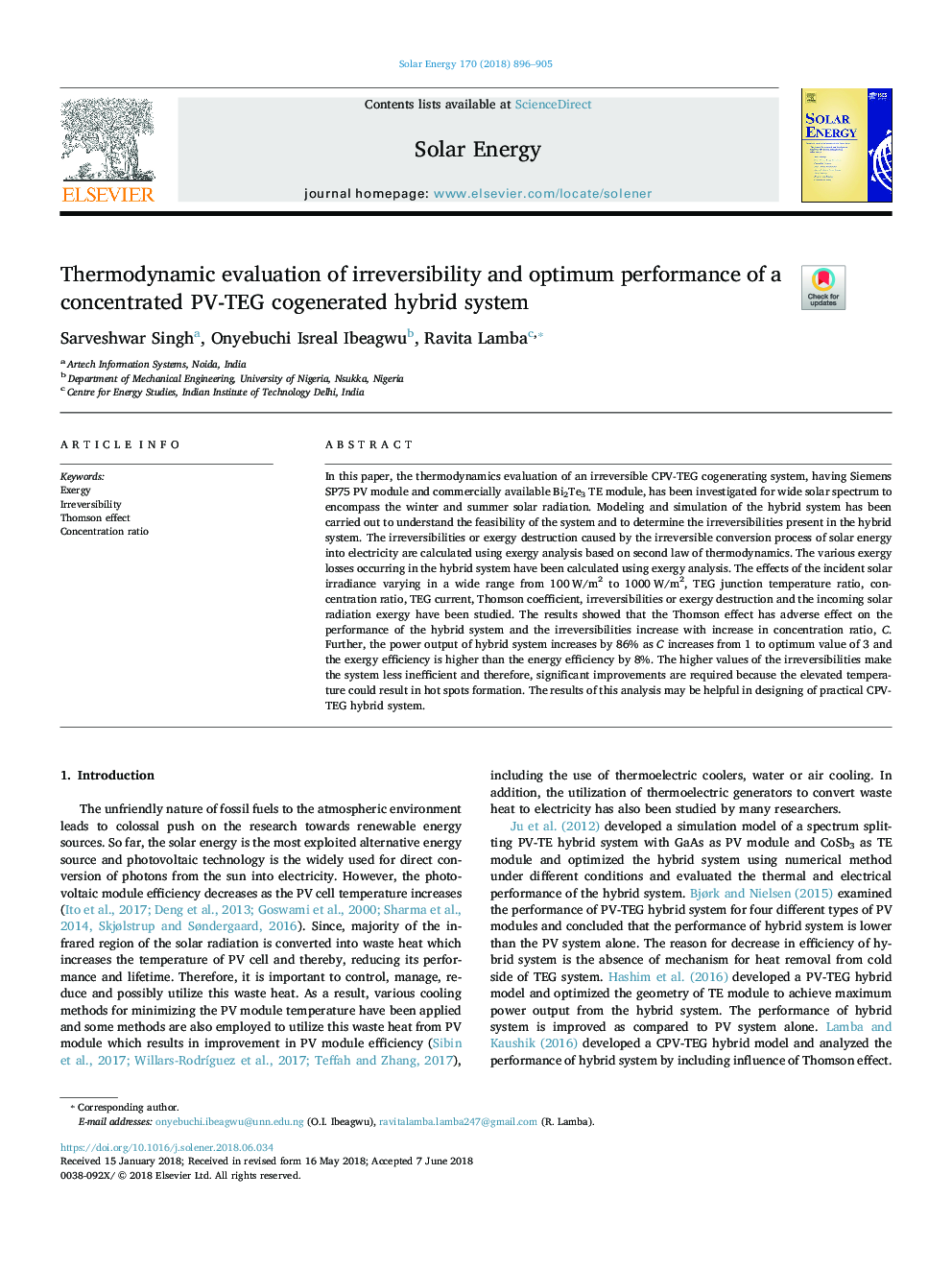| Article ID | Journal | Published Year | Pages | File Type |
|---|---|---|---|---|
| 7935136 | Solar Energy | 2018 | 10 Pages |
Abstract
In this paper, the thermodynamics evaluation of an irreversible CPV-TEG cogenerating system, having Siemens SP75 PV module and commercially available Bi2Te3 TE module, has been investigated for wide solar spectrum to encompass the winter and summer solar radiation. Modeling and simulation of the hybrid system has been carried out to understand the feasibility of the system and to determine the irreversibilities present in the hybrid system. The irreversibilities or exergy destruction caused by the irreversible conversion process of solar energy into electricity are calculated using exergy analysis based on second law of thermodynamics. The various exergy losses occurring in the hybrid system have been calculated using exergy analysis. The effects of the incident solar irradiance varying in a wide range from 100â¯W/m2 to 1000â¯W/m2, TEG junction temperature ratio, concentration ratio, TEG current, Thomson coefficient, irreversibilities or exergy destruction and the incoming solar radiation exergy have been studied. The results showed that the Thomson effect has adverse effect on the performance of the hybrid system and the irreversibilities increase with increase in concentration ratio, C. Further, the power output of hybrid system increases by 86% as C increases from 1 to optimum value of 3 and the exergy efficiency is higher than the energy efficiency by 8%. The higher values of the irreversibilities make the system less inefficient and therefore, significant improvements are required because the elevated temperature could result in hot spots formation. The results of this analysis may be helpful in designing of practical CPV-TEG hybrid system.
Related Topics
Physical Sciences and Engineering
Energy
Renewable Energy, Sustainability and the Environment
Authors
Sarveshwar Singh, Onyebuchi Isreal Ibeagwu, Ravita Lamba,
